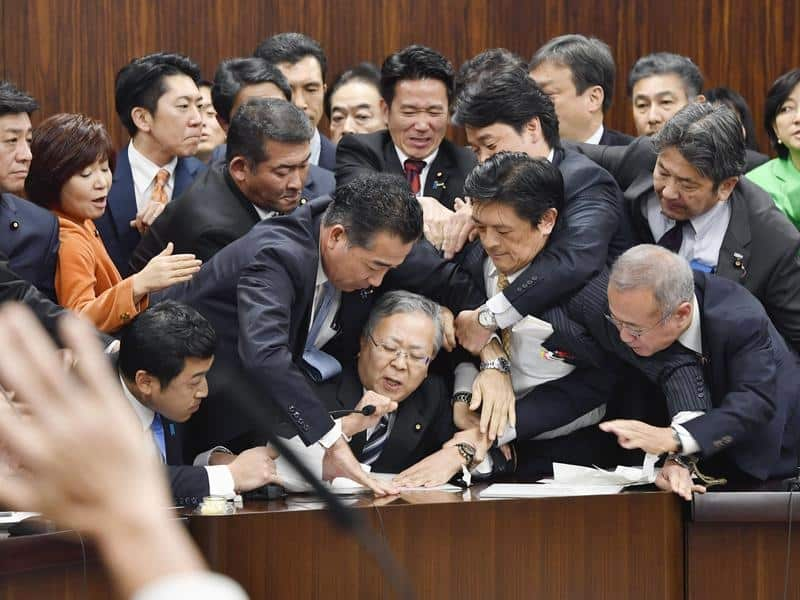The woman tasked with repitching Japan’s strict immigration policy to open the doors to foreign workers for the first time says she wants to avoid the ‘friction’ evident in Australia’s multicultural community. Japanese MP Yoko Kamikawa said the country has a lot to learn from Australia in ‘drafting a multicultural community’.
Japanese MP Yoko Kamikawa said the country has a lot to learn from Australia in ‘drafting a multicultural community’.

Japanese MP Yoko Kamikawa speaks at ANU. Source: SBS News
“I understand Australia has welcomed a lot of immigrants,” she told SBS News.
“Australia has faced several frictions coming from the difference in the cultures or religions with people from different backgrounds.
“Japan has a lot of things to learn from your country to overcome these challenges.”
Japan started it’s immigration policy last year, faced with an aging population and a shrinking labour force.
A new visa program, aiming to lure more foreign workers to Japan took effect in April, and Ms Kamikawa said it was working well so far.
But she flagged room for further improvement.
The visa covers 14 industries that need foreign workers to boost labour forces - including food services, cleaning, construction, agriculture, fishing, vehicle repair and machine operations. Ms Kamikawa said, so far, the number of foreign workers entering Japan would be relatively small.
Ms Kamikawa said, so far, the number of foreign workers entering Japan would be relatively small.

Japan's new foreign worker visas took effect in April. Source: AAP
“We estimate that there will be merely 350,000 foreign workers in the next five years,” she said.
“We will improve the system step by step. We are trying to make the best effort to make our system properly workable.”
But there has been to the new visas. Ms Kamikawa said while some tension was ‘inevitable’, she believed the key to a successful multicultural community was a mutual understanding.
Ms Kamikawa said while some tension was ‘inevitable’, she believed the key to a successful multicultural community was a mutual understanding.

Japan's opposition parties tried to stop the committee chairman from holding a vote on the bill last year. Source: AAP
“We have to see beyond the difference in the cultures and the religious differences, especially in the workplace and at the community level,” she said.
“We must try to study from each other and learn from each other.
“The foreign workers should study Japanese culture but at the same time, the Japanese community must understand the people with a different background, from foreign countries.
“Mutual understanding is the key and I strongly believe with mutual understanding it will lead to achieving a true multicultural society eventually.”
Ms Kamikawa said Japan was also looking at ways of ‘improving the process’ for refugee intake.
Japan has accepted just over 40 asylum seekers so far in 2019, which is already double the intake of last year.
“Japan is now looking a process of welcoming refugees and the convention relating to the status of refugees,” Ms Kamikawa said.
“We try to continue to improve these operations and we try to have more refugee intake into our society in accordance with international obligations.”


